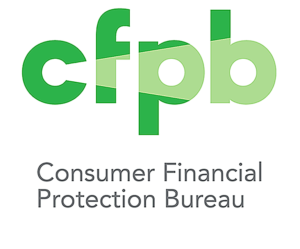In its latest Supervisory Highlights report, the Consumer Financial Protection Bureau emphasized violations involving Loan Officer Compensation and Changed Circumstances that NRMLA felt should be shared with the membership.
The CFPB publishes Supervisory Highlights to help institutions and the general public better understand how it examines institutions for compliance with federal consumer financial laws by summarizing existing legal requirements and violations identified during examinations. Highlights:
- 2.6.1 Compensating loan originators differently based on product type
Regulation Z generally prohibits compensating mortgage loan originators in an amount that is based on the terms of a transaction. As explained by the Bureau, it is not permissible to differentiate compensation based on credit product type, since products are simply a bundle of particular terms. Examiners found that certain lenders’ loan originator compensation agreements provided for higher loan originator compensation where Fannie Mae conforming fixed-rate loans surpassed a designated threshold percentage of the total loans closed by the loan originator. This compensation was higher than the compensation paid when such loans did not surpass the designated threshold percentage. As a result of these findings, the lenders have agreed to change their compensation plans to bring them into compliance with the Loan Originator Rule. While this finding doesn’t relate directly to reverse mortgages, companies that offer Home Equity Conversion Mortgages and private-label reverse mortgages are bound by these same requirements in Reg Z. Members should consult with their own legal counsel to ensure compliance. - 2.6.2 Insufficient documentation for changed circumstance
Regulation Z requires a creditor to provide the consumer with good faith estimates on the Loan Estimate for certain transactions. The closing cost estimates are generally considered to be in good faith if the amount paid by or imposed on the consumer does not exceed the amount originally disclosed. A creditor is permitted to use a revised estimate of a charge instead of the estimate of the charge originally disclosed to reset tolerances when there is a valid changed circumstance permitted by Regulation Z that resulted in the increased costs. Examiners found that certain lenders failed to retain sufficient documentation to establish the changed circumstance’s validity. Specifically, the lenders disclosed an appraisal fee on initial Loan Estimates and subsequently disclosed appraisal rush fees, in a higher amount, on revised Loan Estimates. The lenders claimed the rush appraisals, which led to the appraisal rush fees, were requested by consumers. However, in each instance, the lender failed to maintain sufficient documentation evidencing the consumer’s request of the rush appraisals.
To read about these issues in greater detail, download the Supervisory Highlights report.

